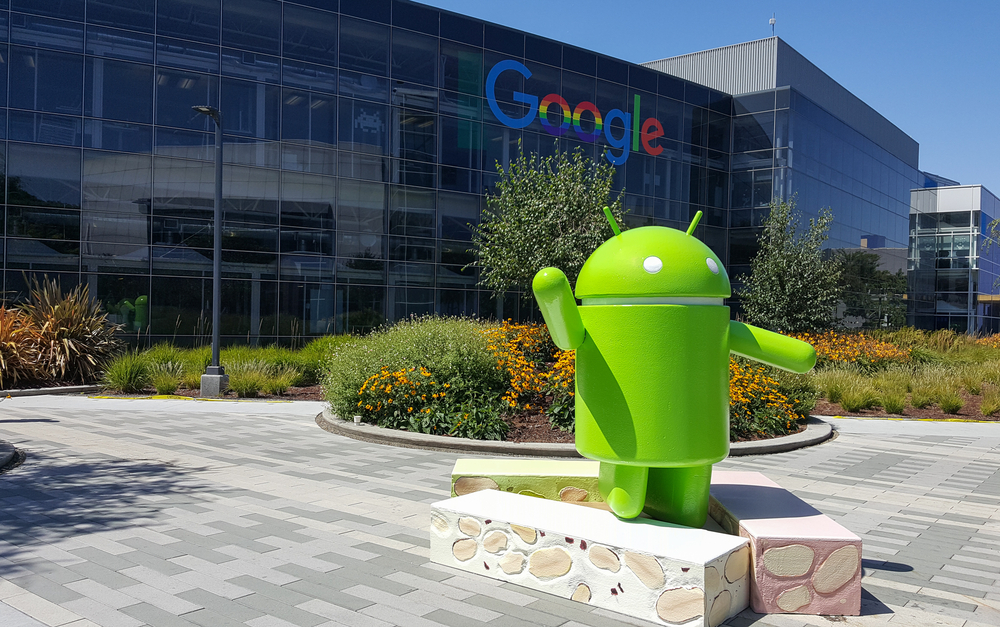亲爱的香农:如何找到Google梦想的工作

我每天都与职业改变者合作,影响专业人士希望利用自己的技能和过去的经验来瞄准和扮演自己的梦想角色。
我建议我所有的客户都可以改变职业 - 但是您不能一次更改所有内容。共同努力,通过临时步骤进行工作,建立经验,技能,影响力和人际关系,这最终将使他们的职业发展成为梦想角色的道路。
My client, Vijay Padmanabhan, is a great example. Our work together focused on making his extensive experience in government and academia relevant to private sector employers. After just six months of actively searching for jobs, Vijay broke into the tech sector by landing a role as Policy Advisor at Google.
I recently had the pleasure of touring Google’s headquarters in San Francisco with him and sitting down to discuss how Google hires, how’s he’s settled into this role, and what his next moves might be. Here’s what he had to say:
香农·霍德(Shannon Houde):告诉我一些关于你现在在做什么的事情。
Vijay Padmanabhan:我正在建立信托与安全团队,该团队是一支拥有约600-700名员工的全球团队。在其中,我是小型政策小组,我认为整个团队都是25人。这是一个非常有趣的职位,因为我们的组织致力于尊重和保护用户。
We write the rules to protect users and our loyalty is ultimately to them. The team is very diverse in terms of backgrounds and skill sets. You need a lot of different skills because job is not just about writing rules but also implementing them so having a lot of different mindsets is crucial. People come from everywhere – engineering, public policy, academia, you name it.
Landing the dream job
霍德:您认为我们的教练计划成功的关键是什么?
Padmanabhan:We identified what I’m really good at doing, what I like doing, and then looked at finding a role where I could actually do those things. For example, I didn’t know terms like “stakeholder engagement."
I wasn’t thinking about myself in terms of skills. It’s all about identifying what you like to do at work and finding the right language to present that as relevant for your audience. That’s the key. Ask yourself, what are the skills you really want to develop? In my role now, I get to do what I love and what I am good at but I am also always looking to continue growing and developing new skills and relationships.
霍德:您需要多长时间进行过渡?
Padmanabhan:我认为我们在获得这项工作之前共同工作了6个月,这很快了,考虑到我直到我们准备一段时间才真正把自己放在那里。
霍德:你是怎么找到这份工作?
Padmanabhan:I basically followed your advice religiously that you should not just send in blind applications. Rather, find someone in the company you can talk to first. When I was looking for jobs and I found something I was interested in, I would first scour LinkedIn and find someone, or someone who knew someone, who would talk to me or introduce me personally to someone who I could talk to live. I did this outreach mostly through email.
我不知道诸如“利益相关者互动”之类的术语。
Google公开发布了所有工作,因此我在网上找到了它,但是后来我也能够找到公司中的一个人亲自推进我的应用程序。我们在LinkedIn上建立了联系,我与他联系。您可以找到列表,但是如果Googer提出您的建议,您将有更好的机会。就像您说的那样,如果您可以在组织中找到内部联系人,则可以将机会增加70%。
霍德:那就对了。现在,事情变得如此有竞争力,以至于您必须竭尽所能,以使额外的腿变得越来越多。在LinkedIn上使用您的第一个和第二个连接,以进入真实的人面前。如果您可以收到电话号码,我仍然是电话。
Just yesterday I had a client, a Yale graduate, who was applying to Clif Bar. She got on LinkedIn, had a second connection to the hiring manager, who also went to Yale. She used Rapportive, a Chrome extension, to guess her email address. And we then crafted a very short three-line message directly to the hiring manager. She is interviewing there this week so stay tuned.
In terms of your own skills, what do you feel you are using the most?
Padmanabhan:在利益相关者的参与方面,这一角色非常重要 - 内部比外部更重要。为了成功,您必须与不同的内部组织建立和建立正确的关系,例如与产品团队。
因此,我伸出援手与该组织的不同成员会面,解释我的政策团队的工作,了解他们的优先事项是什么,然后在我的团队可以帮助用户还会影响产品决策的用户的领域中找到问题。
霍德:发行发现的关键是什么?
Padmanabhan:这确实是要弄清楚对方试图实现的目标,他们的目标是什么,然后试图说服他们为什么您的工作对他们有帮助。很多时候,我在开发问题发现过程中,这是一个非常企业家的角色。
If you are the type of person that just wants to be given a project, that is not really what this work is about. To be successful on this team, it’s more about, ‘let me go out and find a project or make a project’.
霍德:您对进入技术感到惊讶吗?
Padmanabhan:主要是,这里的人们的背景多样性。我团队中几乎没有人来自技术。大多数个人资料都是做了很多不同事情的人。
霍德:So then what do you think is the common factor for hiring to this team?
Padmanabhan:Google is looking for people who have the skills to succeed in this particular environment – problem solving, stakeholder engagement, communications. It’s hard to find the whole package of people who are effective and aggressive at delivering on these.
霍德:That’s interesting because I see a lot of people selling themselves to have these skills, so I am wondering what’s the next layer at Google to really find the right people. Do you think this is one reason the interviews are hypothetical as opposed to competency-based?
Padmanabhan:是的,他们希望看看您的想法。无论您的工作职能如何,您都必须成为企业家。由于它是由工程和测试驱动的,因此这种环境可能是一个非常关键的环境。您必须找到一种方法来以工程师欣赏的方式构建贡献。
This is the common language. If you come from a different background, the way decisions are made may seem alien to you. Here, things are very data driven, critical by nature, and you have to prove your worth and your value add constantly.




